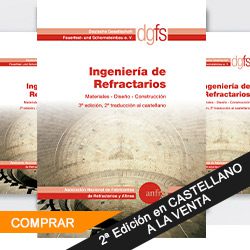The UK produces 1 million tonnes per year of kaolin, a raw material of ceramics, which a cross-sector interest group hopes to protect with EU-derived anti-dumping duties following the UK’s exit from the European Union.
The UK ceramics industry is lobbying the UK government to ensure that anti-dumping duties for China based on existing EU rules stay in place post-Brexit to protect the supply chain and preserve jobs.
Tableware and tiles had been most affected among the ceramics industry by cheap Chinese imports until the EU applied a tariff of 13.1-36.1% on those products, which came into force on May 14, 2013.
Kaolin is one of the raw materials in the ceramics production stream, and the UK produces 1 million tpy of the mineral, according to the United States Geological Survey.
Industrial Minerals priced kaolin at $231-241 per tonne for tableware(-45 micron, FCL’s bagged>90 whiteness, fob HaiPhong, Vietnam) on February 13, flat from the previous month.
With the UK set to leave the EU, such EU-enforced protections will cease to apply in the UK on March 29, 2019, unless a transitional period is agreed with the remaining 27-member bloc.
«At present UK ceramic manufacturers and their supply chain benefit from two EU anti-dumping measures covering imports of tiles and tableware from China. The anti-dumping duties provide our members with a level playing field with state-supported Chinese competitors,» the British Ceramics Confederation (BCC), a trade interest group, which is lobbying on behalf of all sectors of the UK ceramics industry, told Industrial Minerals.
«The bills currently before Parliament need to [be amended to] enable similar UK measures, but at the moment they fall short. This isn’t about protectionism, it’s about restoring a competitive environment when some countries break the rules,» the BCC added.
The Taxation (Cross-Border Trade) Bill, first brought before parliament on November 20, 2017, proposes an economic interest test and public interest test should be used to calculate the damage to sales and jobs and will be imposed by a newly-created Trade Remedies Authority (TRA).
The TRA would be in charge of implementing any trade remedies or anti-dumping duties, while the two tests are deemed to be too vaguely outlined in the bill and therefore insufficient to protect UK producers from dumped products.
The European Ceramic Industry Association and European Federation for Ceramic Table- and Ornamentalware claim Chinese imports have caused the loss of 10,000 jobs among EU producers between 2008-2013 and reduced output, allowing Chinese control of the industry.
The UK ceramics industry currently creates an annual $2 billion turnover, and $500 million of exports.
Should China flood the UK market with cheaply-made ceramics products, Chinese products could then hold a monopoly on the market.
Those given market economy status (MES) by the World Trade Organisation are exempt from anti-dumping duties, whereas non-MES countries can have their products subject to tariffs.
China has not yet been given MES, but is lobbying to achieve this.
Countries such China and Vietnam, where the state exerts a lot of influence in the domestic economy by providing subsidies, for instance, create artificially-low prices on products in countries where they are exported.



